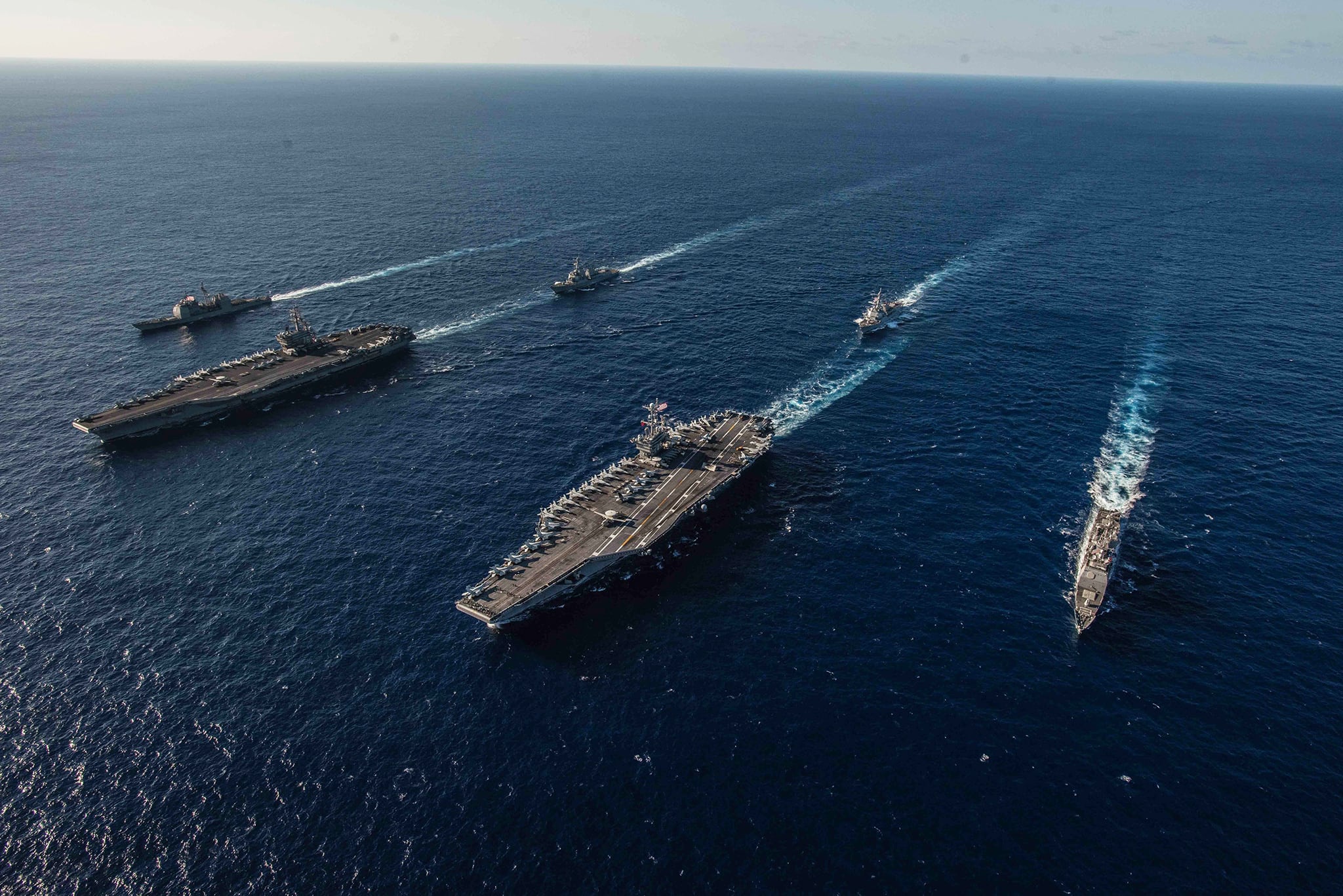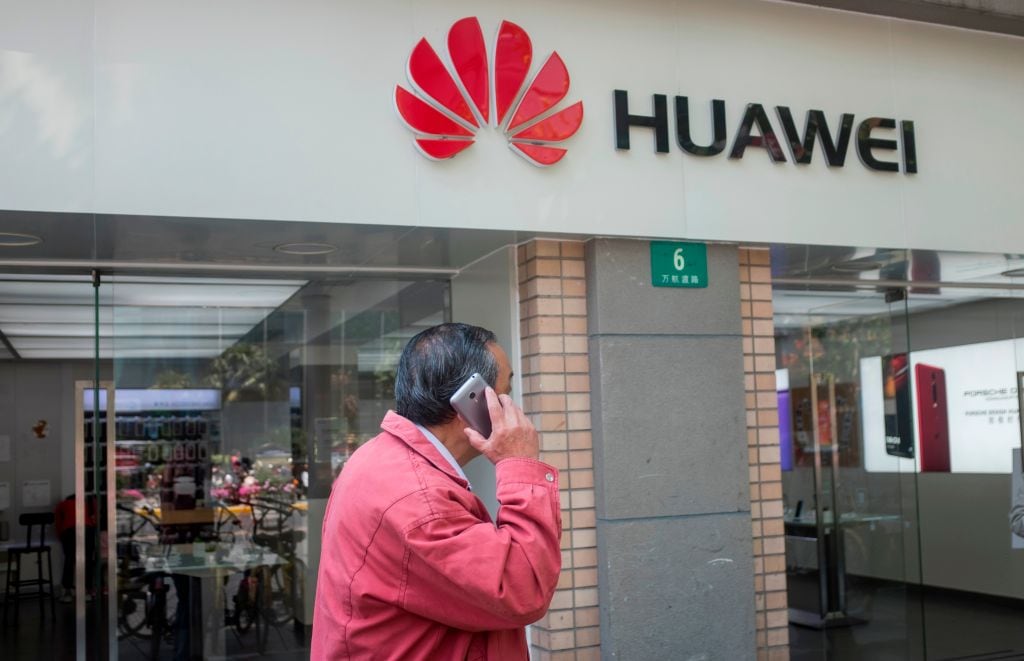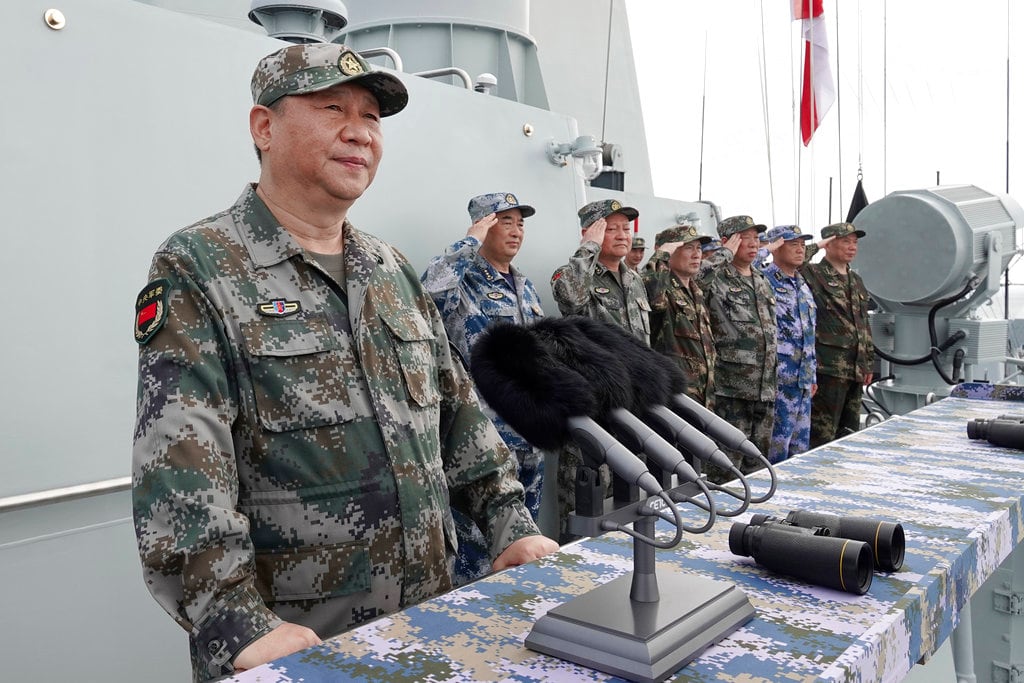China’s ongoing military buildup on islands in the South China Sea is akin to “preparing for World War III,” the chair of the Senate Armed Services Committee declared on Tuesday.
The comment by Republican Sen. James Inhofe of Oklahoma came during a hearing to discuss the challenges posed by rising military powers China and Russia, a discussion that included ideas on how the people can better understand the threats to the world order that America built and has benefited from for decades.
While the U.S. military has a presence in and around the South China Sea and the larger western Pacific Ocean, Inhofe said America largely watched China lay claim to its rocks and islets before turning other reefs into fortifications, brimming with arms and stockpiled with materiel.
Beijing’s ongoing expansion into the Spratly archipelago agitates neighboring nations and continues to challenge international law, an assertiveness the U.S. Navy attempts to check through routine freedom of navigation operations, or FONOPs.
A Chinese warship nearly rammed the guided-missile destroyer Decatur last fall near contested reefs that are occupied by Beijing’s troops but also claimed by Vietnam, Taiwan and the Philippines.
“It’s like you’re preparing for World War III,” Inhofe said. “You’re talking to our allies over there and you wonder whose side they’re going to be on.”
RELATED

Inhofe and other senators, as well as experts who testified before the committee, noted that the urgency of the Chinese threat against America and today’s world order may not be fully appreciated by U.S. citizens.
“I’m concerned our message is not getting across,” said Inhofe, who took over the committee this month.
The days of indisputable American military dominance in the Pacific following the defeat of Japan in 1945 and the collapse of the Soviet Union in 1991 has ended, he warned.
“There’s this euphoric attitude people have had since World War II that somehow we have the best of everything,” Inhofe said.
But Elbridge Colby, a former deputy assistant secretary of defense for strategy and force development and now a director at the Washington-based Center for a New American Security think tank, told lawmakers Tuesday that America also has “immense reservoirs” of national power.
A fellow hand at CNAS, Ely Ratner, added that it’s important for Senators and all other Americans to know that Washington’s rocky relationship with China is neither "an episodic downturn” nor a problem that began with President Donald Trump and his administration’s policies.
Saying that the American people "should be preparing for long-term competition with China,” Ratner also warned Beijing’s support for embattled Venezuelan strongman Nicholas Maduro should be viewed as a sign of things to come.
“I think it’s a harbinger of what a China-led order would look like…in terms of protecting and defending non-democratic regimes and impeding the ability of the international community to galvanize and respond,” said Ratner, a former deputy national security advisor to Vice President Joe Biden.
“If we don’t get our act together in Asia, we’re going to see this movie over and over and over again throughout the developing world.”
RELATED

Inhofe alluded to studies showing that U.S. or NATO forces could potentially lose a war with Russia.
The Chinese and Russians already know that, Colby said.
“I’m more concerned that the American people understand that and have the urgency to stay ahead of this threat,” he said.
Sen. Roger Wicker pointed to the announcement Monday of indictments against the Chinese telecommunications giant Huawei, a company with ties to Beijing’s military and security services.
The Pentagon banned sales of their products on base stores last year and Navy Secretary Richard Spencer has sounded the alarm about Huawei’s technology sneaking into the American military supply chain.
Colby said companies like Huawei give Beijing economic leverage against countries unsure of whether to side with America or China.
“This dissolves or corrodes the resolve of countries to potentially stand up to Chinese coercion,” he said.
At the same time, Colby testified, alliances and partnerships with Pacific Rim countries can forestall the belief that a Chinese world order is inevitable, which is why Washington should value and strengthen the ties.
“These alliances are enlightened self-interest, and not charity,” he said.
Geoff is the managing editor of Military Times, but he still loves writing stories. He covered Iraq and Afghanistan extensively and was a reporter at the Chicago Tribune. He welcomes any and all kinds of tips at geoffz@militarytimes.com.
